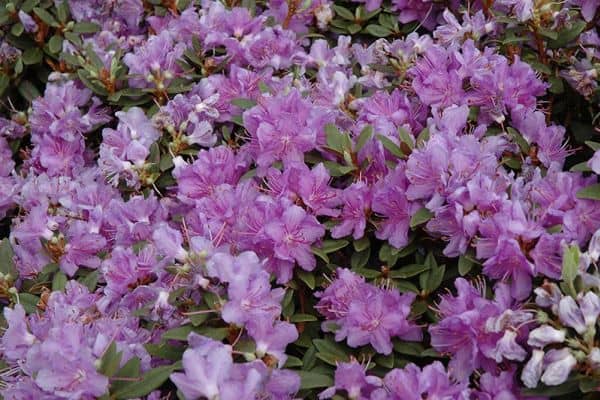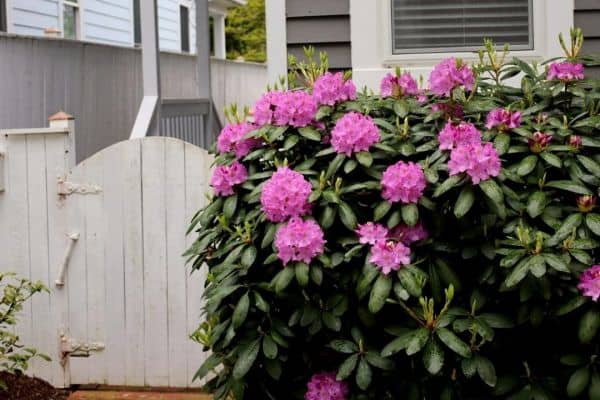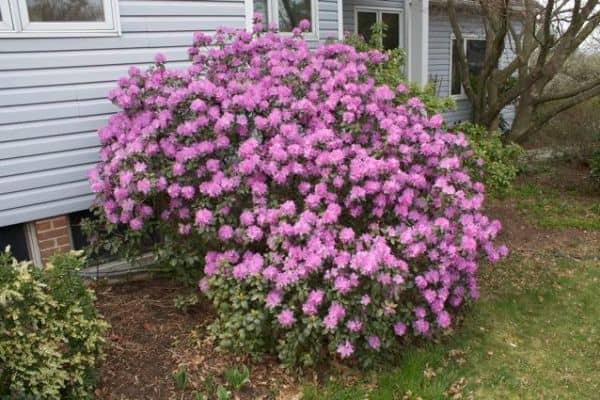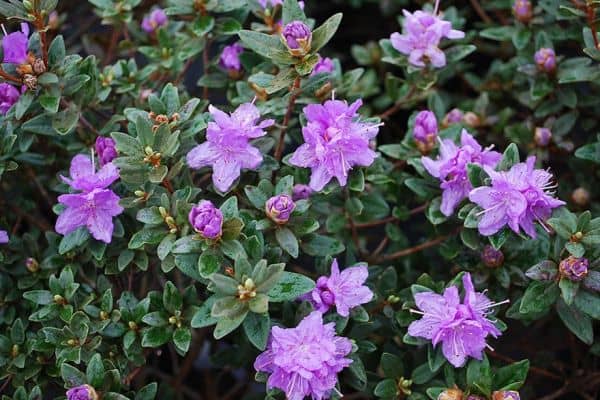Purple Gem Rhododendron is one of the open multi-stemmed evergreen shrubs that can get dense and compact. They can be one of the best garden plants for your home and it is also one of the easy to grow plants. Purple Gem Rhododendron grows at a slow time rate but it can leave up to 40 years after they are well settled and taken care of properly when planted.
So in this section, we will be learning how to grow and care for Purple Gem Rhododendrons and all you need to know:
Purple Gem Rhododendron Growth and Care
1. Light
As for light purple gem rhododendrons need full sun to partial shade to grow properly. They require three to six hours of direct sunlight for them to grow properly and bloom properly.
2. Soil
As for soil purple gem rhododendrons need well-drained, acidic soil in a garden area. Suppose your garden soil has a low pH, peaty soil, or ericaceous compost to avoid chlorosis or yellowing of the leaves. They can grow at their best if the soil is acidic to thrive and cannot grow in neutral or alkaline soil conditions.
Just before planting purple gem rhododendrons, you need to loosen the soil of your garden to 1 foot in depth and amend it with compost at a ratio of 1/2 pound per square foot.
3. Plant Purple Gem Rhododendron
As of soil is done now you have to plant the Purple Gem rhododendrons you can plant matured Purple Gem rhododendrons in the spring or early fall and lose the roots on the outside of the root ball by hand. Remember to plant it one to two inches above the soil level and space each of them three to four feet apart.

4. Water
As for water purple gem rhododendrons need constant moisture but remember not to provide standing water to them. You also need to cut back the water in winter and increase the watering more than in winter in late fall.
Also, after planting the Purple Gem rhododendrons, you will have to let the water soak deep into their roots just after planting for several minutes. You will also have to water the plant every 10 to 14 days regularly until it settles down.
5. Mulch the Plants
As for mulching the purple gem rhododendrons, you have to add two to three inches of mulch which should be made up of bark chips or coarse compost around the base. Remember to replace the mulch late in the fall as changing it helps the soil moisture and control weeds.
6. Fertilizer
As for fertilizer Purple Gem rhododendrons need 6-10-14 fertilizer in the spring and just after flowering. According to the University of Nebraska Extension, you can also use fertilizer at the rate of 2 pounds per 100 square feet.

7. Prune the Plants
As for pruning Purple Gem rhododendrons, you will have to prune dead flower stems after the blooming of the flower finishes. Pruning the dead flower stems helps the plant to improve the next year’s flower production. You also have to remove dead or diseased leaves or leaf buds throughout the year.
Remember if the Purple Gem rhododendrons plants become overgrown you will have to prune the plant aggressively in the early spring while cutting the plants down to one foot in height. After you prune aggressively in the early spring you will have to water them aggressively to the pruned plants heavily throughout the rest of the summer to keep them healthy.
8. Treat Pests and Diseases
As for pests and diseases Purple Gem rhododendrons can get a lot of pets and desires like aphids, vine weevils, scale insects, powdery mildews, and bud blasts. Powdery mildew and bud blasts are one of the vulnerable diseases to Purple Gem rhododendrons. You can treat bark scale, whiteflies, red mites, and other minor pests and diseases using the dormant oil while you can use spray insecticides like carbaryl and acephate if they get pests and diseases like weevils, borers, and lace bugs. During fungal diseases like petal blight, leaf gall, and dieback you can use triadimefon fungicide.

FAQs
Q. How big do purple rhododendrons get?
Purple Gem Rhododendron can get up to 4 feet tall at maturity with a spread of 4 feet wide.
Q. Is purple gem rhododendron evergreen?
Yes, Purple Gem Rhododendron is an open multi-stemmed evergreen shrub that can get dense and compact.
Also Read: Anise Hyssop Plant Growth And Care Tips to Attract More Butterflies and Honeybees!
